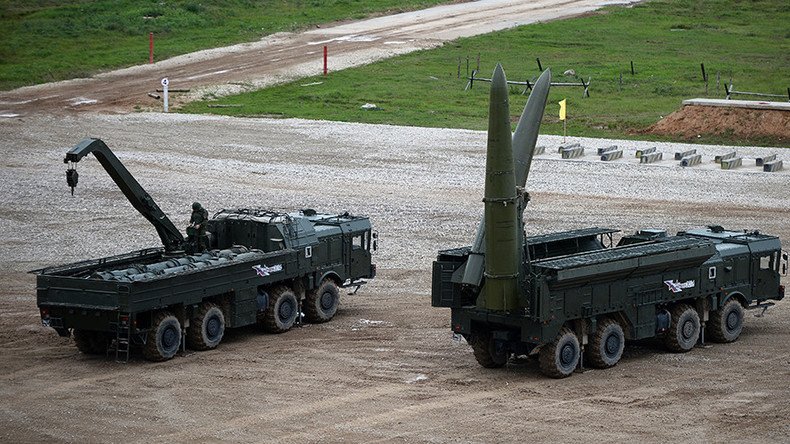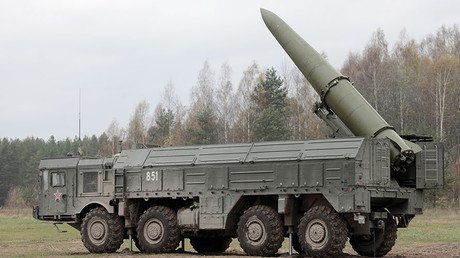Iskander missiles deployment to Kaliningrad part of drill, not secret – Russian military

The deployment of Iskander missile system to Russia’s exclave of Kaliningad close to the border with Poland is part of regular drills and was not a secret, the Russian Defense Ministry announced Saturday.
“First of all, the authors behind the fuss should know that the Iskander missile system is a mobile one,” ministry spokesman General Igor Konashenkov told journalists on Saturday.
“As part of the combat training plan, units of the [Russian] Missile Forces throughout the year improve their marching capabilities by covering great distances across the territory of the Russian Federation in various ways: by air, sea and on their own."
Konashenkov noted that Kaliningrad “is no exemption here” and that the system will be relocated to the exclave in the future “as part of the military training of the Russian armed forces.”
On Friday, Estonia’s media reported that Moscow was deploying Iskander systems to Kaliningrad, a Russian exclave sandwiched between Poland and Lithuania. Later, a source in US military intelligence confirmed to Reuters the relocation, adding that the action “might be harmless” and that Russia had done it previously in 2014.
However, there was no intention to transport the Iskander to Kaliningrad under cover, Konashenkov stated on Saturday.
"By the way, nobody made a big secret out of the transportation of the system onboard the freighter Ambal,” the spokesman said. He added that one of the respective weapons had been even “staged on purpose” to exactly locate a US spy satellite flying over the vessel at the time.
Iskander-M, first introduced to the Russian military in 2013, is aimed at targeting missile systems, rocket launchers, long-range artillery, command posts as well as aircraft and helicopters on the distance of up to 500 kilometers.
Poland has voiced its concerns over the relocation of the weapons. “Recent activity by the Russian Federation raises concerns,” Poland’s Defense Minister Antoni Macierewicz told reporters on Saturday as quoted by TASS. According to the official the country’s military is in “permanent readiness” to ensure the security of Poland and its allies.
“The deployment not only increases tensions in the region, but also possibly violates international treaties,” Lithuania’s Foreign Minister Linas Linkevicius was quoted as saying by Reuters. The official also promised to raise the issue at the next Russia-NATO summit.
The deputy head of the Defense Committee in Russia’s Federation Council, Frants Klintsevich, countered by saying that other states “should not fear” the move. He noted that the deployment is “part of the drill” since Russia “is not at war” with anyone.
"They [Iskander] do not bear any threat, they are designed to ensure the security of our territory in the event of any real threat. Nothing else," Klintsevich stressed.
The US and its Western allies on their part have been boosting their military presence close to Russia’s border over the recent period of time.
In July this year NATO announced the location of up to 4,000 soldiers in Poland as well as Lithuania, Latvia and Estonia starting with next year. Washington will also start rotate a heavy brigade in Poland.
In May, the US launched a new ground based missile defense system in Romania, known as Aegis Ashore. It will be operated by NATO and is officially aimed at preventing any potential missile attacks from what the US called rogue states, including Iran. Another part of the system which will see a missile launch platform in Poland is estimated to be ready by 2018.
Yet Russia insisted the move is aiding insecurity close to its borders and jeopardizes the “strategic balance.”
“We still view the destructive actions of the United States and its allies in the area of missile defense as a direct threat to global and regional security,” Russian Foreign Ministry spokesperson Maria Zakharova said, reacting to the opening of Aegis Ashore.














